The water scarcity in this part of Komrabai is causing its 167 people to suffer daily.
"There is only one protected dug well with [a] hand pump in this community," said field officer Philip James Allieu. "The water well is not sustainable. It dries from April to May every year. Sometimes, the water becomes filthy when it is about to dry [up]. The pump on the well is old, therefore, [it] cannot bear the pressure from the community. The pump frequently breaks down because of the high demand of water from the community people."
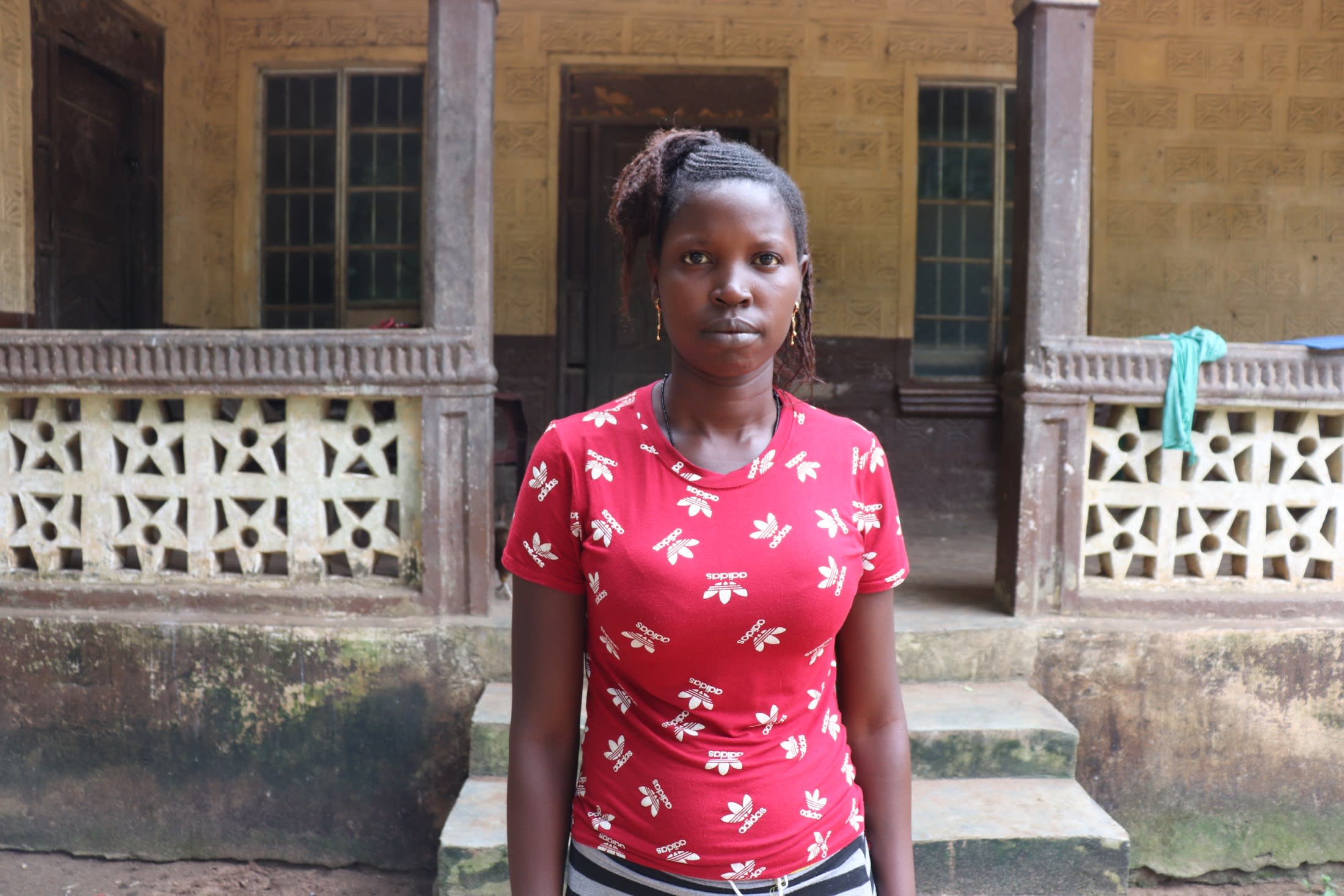
"I am not happy about the condition of water in this community. I use water every day to drink, bathe, prepare food, and to launder clothes. All those activities can be only completed with the use of enough water," said 25-year-old farmer Kadiatu Kamara (shown above).
When the well that needs to be rehabilitated (pictured below) is not functioning or is too overcrowded for community members to access, they resort to collecting water from the local stream.
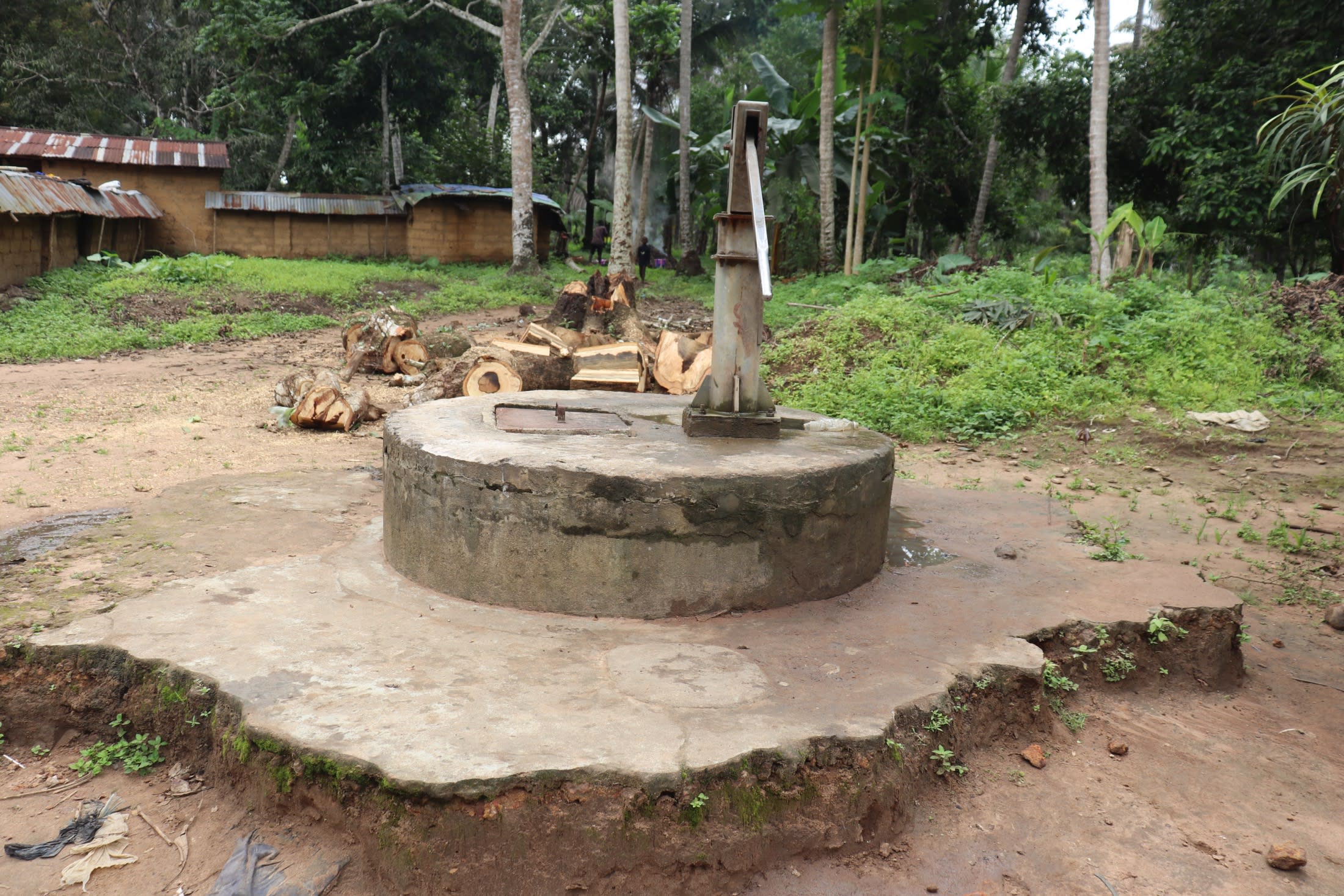
"The water well in this community is not providing the amount of water I need to use every day. This always causes me a burden of going to fetch water from the stream. I cannot fetch enough water from the stream because of the long distance and the low amount of water," said Kadiatu, at the stream below.
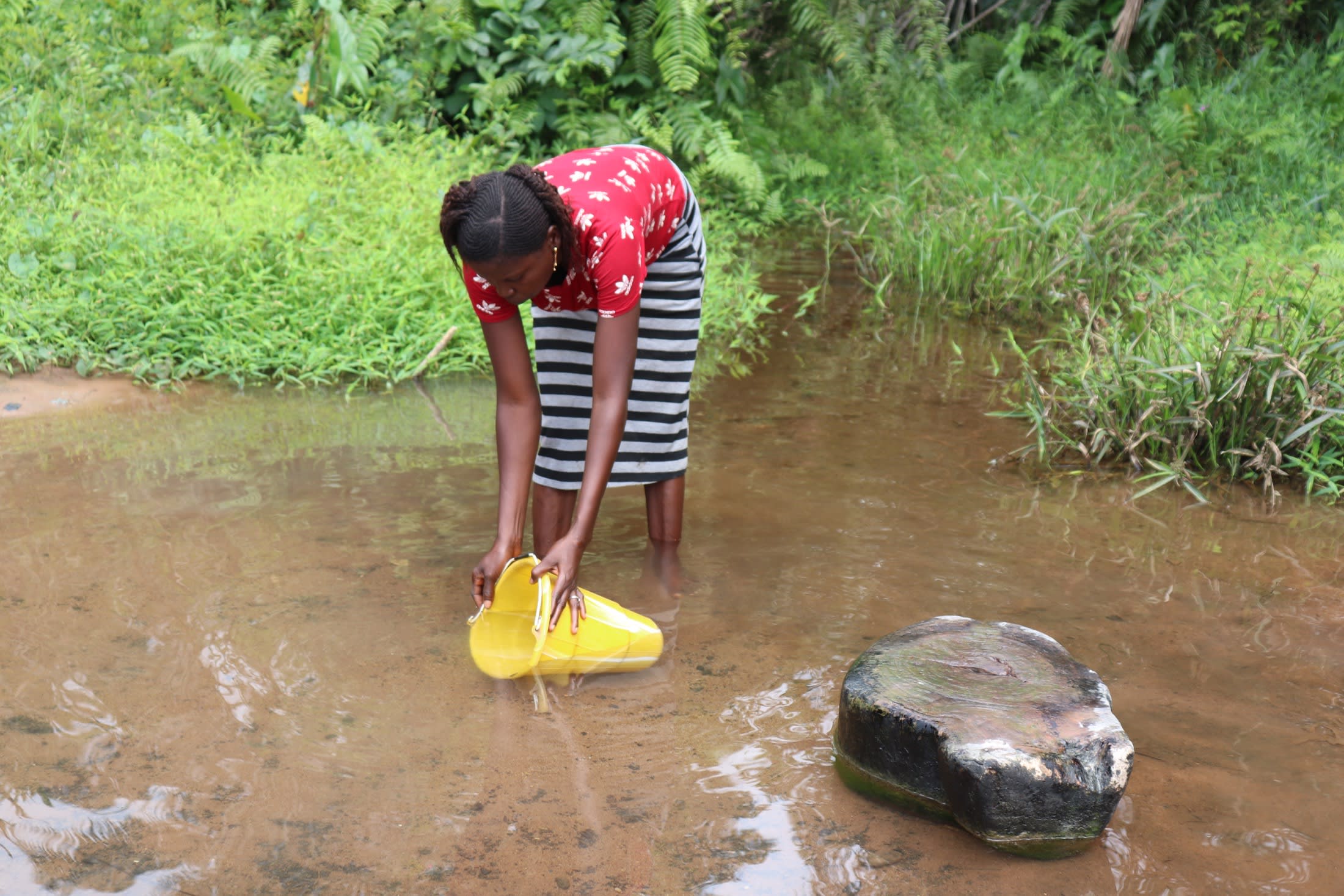
Because of the amount of time it takes for Kadiatu to collect and carry water, she simply runs out of time to meet her other obligations.
"My children are too young to fetch me water," said Kadiatu. "I am the only one fetching enough water for my family. Doing other domestic activities is also my responsibility as a married woman. I also work in my farm every day before coming to the house to fetch water and prepare food for my family. I need more time to do all the daily activities. The time I am spending on fetching water is more than the time I need to complete the other activities. Sometimes, I could not finish all that I wanted to complete because of the shortage in water."
Not only is it difficult to collect sufficient water to meet her needs, but what she does manage to collect leaves her concerned because she knows it is not safe to consume.
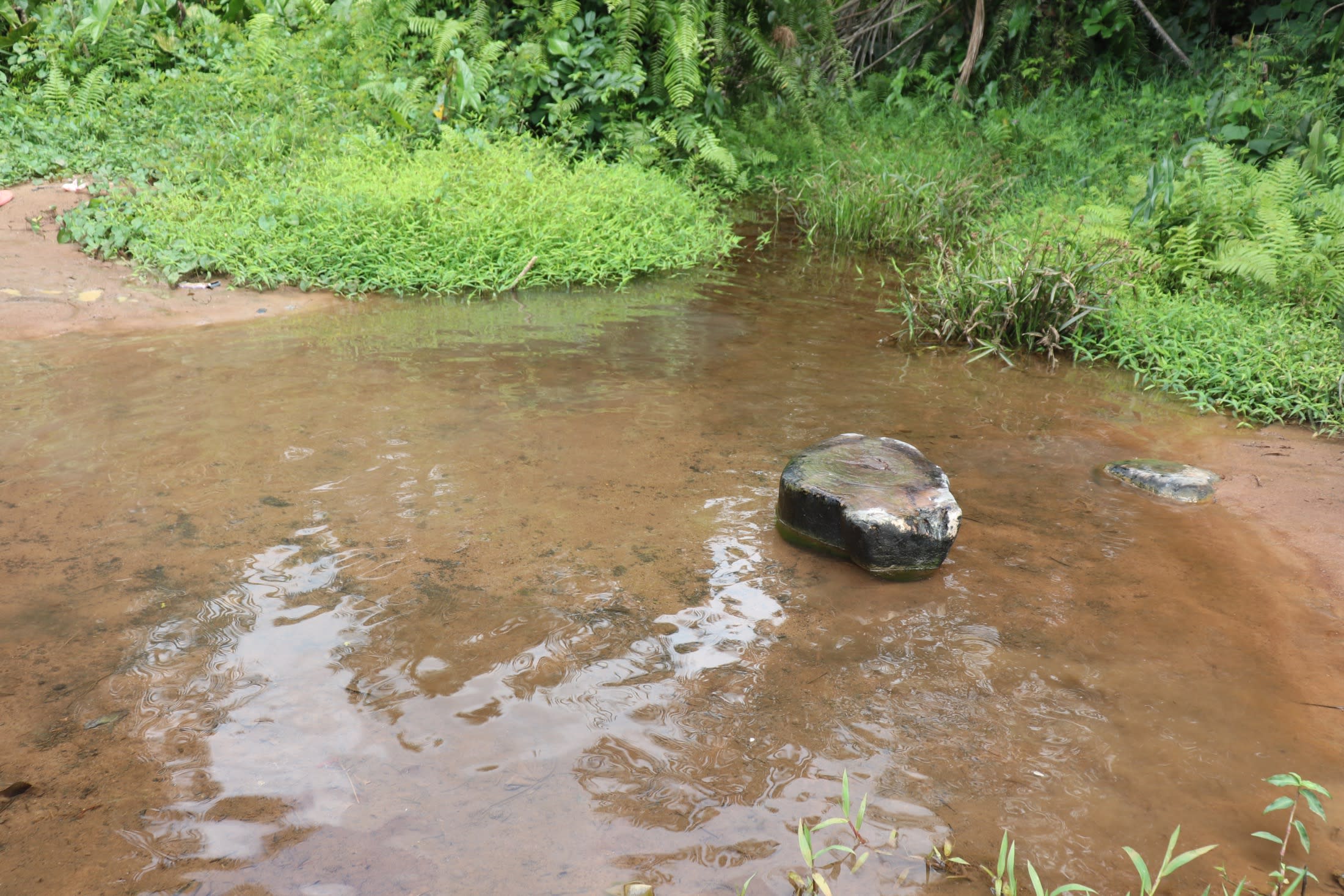
"Sometimes, I could not be happy when I am drinking water from the stream because I know it is not clean and the water is always open [to contamination]," she said. "Any animal can step into it to drink. I always feel bad when I think about that. The difficulties that I have on accessing water [are] becoming more worrying, especially during [the] dry season. That is the moment the water well in this community gets dry, and the stream gets low in water," concluded Kadiatu.
"The shortage in water in this community is causing the people to drink from the stream that is not safe. The community [has] reported...experiencing typhoid fever and diarrhea," said field officer Phillip.
14-year-old Adamsay has the burden of collecting enough water for her and her family to use. This means every day, she must collect water before school and again in the evening. The task is leaving her exhausted, with little energy for anything else.
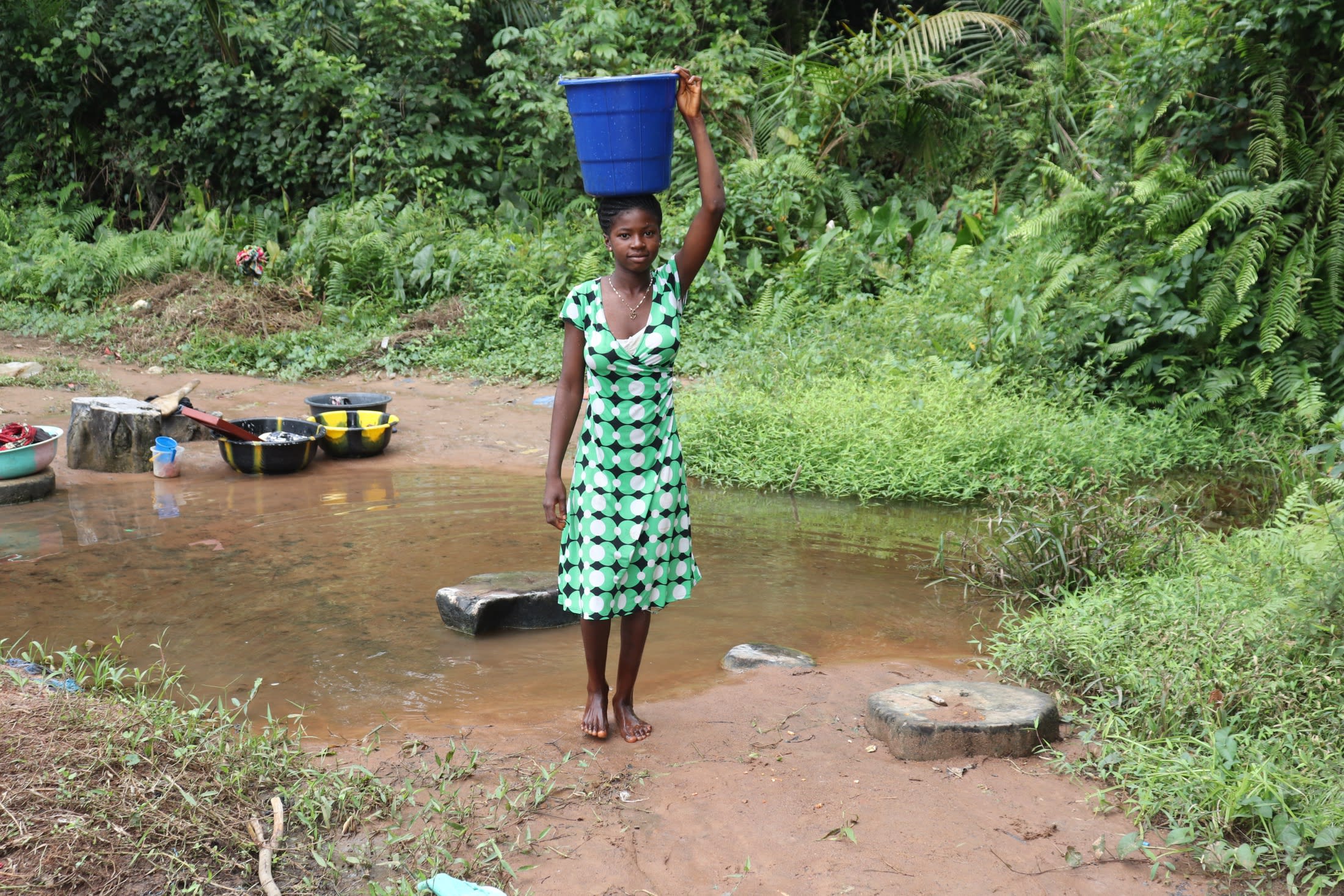
"My daily engagement with domestic activities is too much. I have less time to rest or do my school assignments at home. Trekking from here to my school is not easy because of the long distance," said Adamsay.
She concluded: "If this water well here is working throughout [the year], it will always be easier to fetch enough water to do all other domestic activities. I will be happy if that happens. My worries will also be minimized."
Here’s what we’re going to do about it:
Well Rehabilitation
The well marked for this overhaul is dry for a few months every year and needs major work to supply adequate, clean water to the community year round. The pump will be removed, and a hand auger will be lowered inside and powered by a drill team. This hand auger will allow the team to drill several meters deeper to hit a sufficient water column that will ensure the well supplies water throughout all seasons.
As the team drills, casing will be installed, transforming the bottom of this hand-dug well into a borehole. PVC piping will connect this lower system directly to the pump, a construction that we know will also improve the quality of water.
Once this plan is implemented, everyone within the community will have access to safe drinking water in both quality and quantity, even through the dry months.
Hygiene and Sanitation Training
There will be hygiene and sanitation training sessions offered for three days in a row.
After our visit, the hygiene and sanitation trainer decided it would be best to teach community members how to build a tippy tap (a hand-washing station built with a jerrycan, string, and sticks). They will use these tippy taps for handwashing demonstrations, and will also teach about other tools like dish racks and the importance of properly penning in animals.
These trainings will also strengthen the water user committee that manages and maintains this well. They enforce proper behavior and report to us whenever they need our help solving a serious problem, like a pump breakdown.




 Borehole Well and Hand Pump
Borehole Well and Hand Pump


























